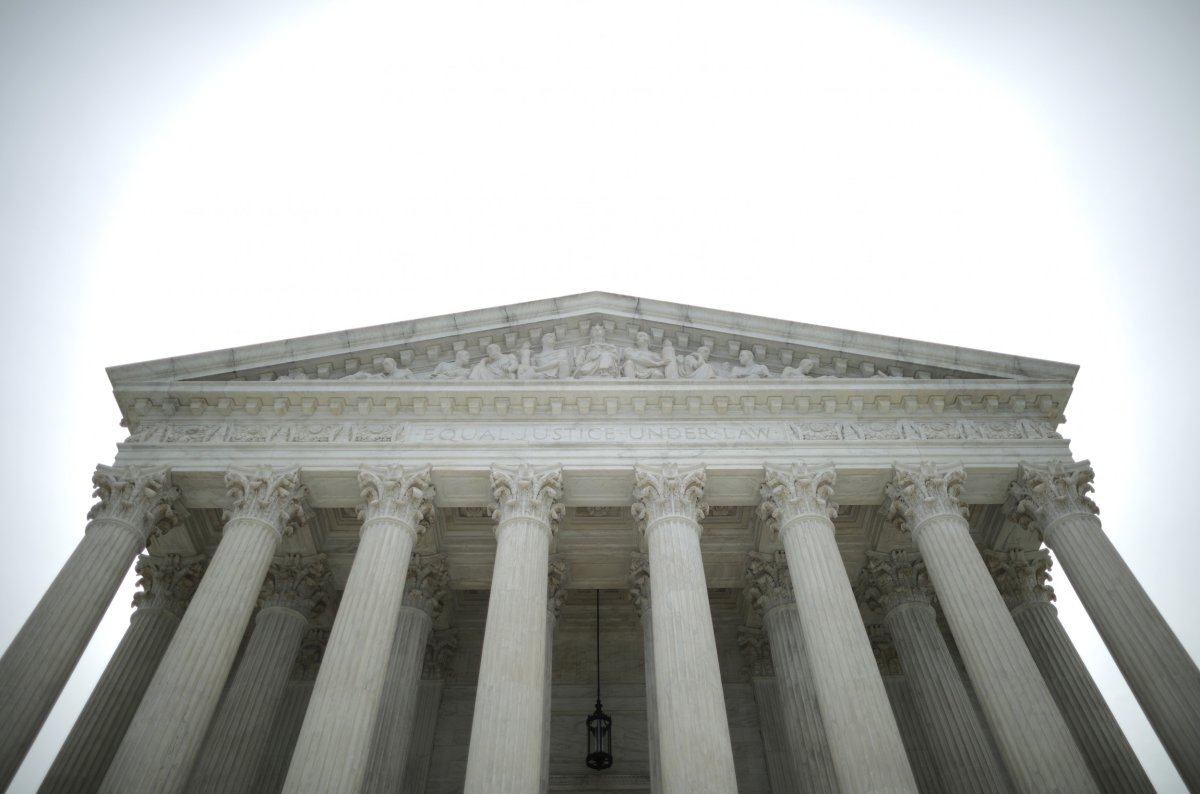"The only certainty is that nothing is certain." If recent months have underscored anything, it's the truth of this age-old maxim. We certainly live in uncertain and unpredictable times.
But our American system of laws is designed to provide a predictable framework for day-to-day life. Unfortunately, the U.S. Supreme Court has now dealt a deep and disappointing blow to that predictable framework. In its decision in R.G. & G.R. Harris Funeral Homes v. Equal Employment Opportunity Commission (bundled with two other cases), the majority redefined "sex" to include "gender identity" and "sexual orientation" in federal employment law.
As Justice Samuel Alito aptly notes in his dissent: "There is only one word for what the Court has done today: legislation. The document that the Court releases is in the form of a judicial opinion interpreting a statute, but that is deceptive."
We all should be able to look to the law and rely on its plain meaning. And business owners—including our clients who stand at the center of the Harris case—should be able to create and enforce policies without having the law reinterpreted, years after it is written, to make their behavior illegal.
The Harris case centers around a fifth-generation, family owned business in the Detroit metro area. Over the decades, Harris Funeral Homes became the gold standard in its community and across the nation—known for serving grieving families with compassion and integrity.
In 2007, the funeral home's owner, Tom Rost, hired a male funeral director who agreed to, and followed, Harris's policies, including a sex-specific dress code. The dress code allows families to focus on processing their grief, a requirement consistent with both industry standards and federal law. Six years later, the funeral director announced an intention to dress and present as a woman when working with grieving families.
Tom carefully considered this, including the impact on the employee's wife, his other employees and the needs of the grieving families. With a heavy heart, Tom decided he couldn't accommodate the request and parted ways with the funeral home director.
The story should've ended there. But unelected federal bureaucrats filed a lawsuit and used the funeral home as a test case, urging the courts to rewrite the meaning of "sex" discrimination and reinvent federal anti-discrimination law 50 years after it was written.
Instead of embracing its role as the law's interpreter, the Court's majority has expanded its role to retroactive author and editor. Justice Alito notes that the ruling isn't even a logical one: "The Court's argument is not only arrogant, it is wrong. It fails on its own terms. 'Sex,' 'sexual orientation,' and 'gender identity' are different concepts, as the Court concedes." Unfortunately, the majority chose to lump them all together.

But while Congress would have been the appropriate venue for legislative updates, redefining "sex" to include "gender identity" and "sexual orientation"—even if attempted legislatively—creates unfair situations for women and girls and directly threatens other vital freedoms, including speech and religion. As I've written elsewhere, such revision would unravel the vital gains women have made toward equality under the law and in our culture.
In the employment context, un-defining the meaning of "sex" puts employers in an impossible situation—forcing them to engage in the exact stereotyping the law condemns. While all people are equal, men and women are not interchangeable. And it's simply unfair to require bosses to determine, on an evolving basis, whether or not biological males are "fitting the part" or passing as female.
That's why progressive feminists and religious conservatives found common cause on the issue and asked the Court to refrain from expanding the meaning of sex to include "gender identity." Biology is not bigotry, and while all people are equal, men and women are not the same.
Even though the Harris decision focused on employment law found in Title VII, the effort to reinterpret federal legislation could quickly extend to Title IX and consequently sideline women. This social experiment has already undermined the privacy and dignity of school-age young women. It's nearly forced vulnerable homeless women to choose between sleeping outside or sharing a room with a violent man. And it cost young track athletes in Connecticut dozens of opportunities to compete, advance and medal. It shouldn't take expert testimony to make the case that men are generally stronger, taller, faster and more muscular than women. Our eyes tell us so. We're doing our daughters a huge disservice to pretend otherwise.
The Supreme Court's decision increases Americans' uncertainty about the meaning and application of the law. That's disappointing. But our work isn't over. With humility, we will keep working to protect the freedom of every American to live and work according to their faith.
Kristen Waggoner is senior vice president of U.S. legal division for Alliance Defending Freedom, which represents R.G. & G.R. Harris Funeral Homes. Follow her on Twitter @KWaggonerADF and follow Alliance Defending Freedom @AllianceDefends.
The views expressed in this article are the writer's own.
Uncommon Knowledge
Newsweek is committed to challenging conventional wisdom and finding connections in the search for common ground.
Newsweek is committed to challenging conventional wisdom and finding connections in the search for common ground.
About the writer
To read how Newsweek uses AI as a newsroom tool, Click here.








